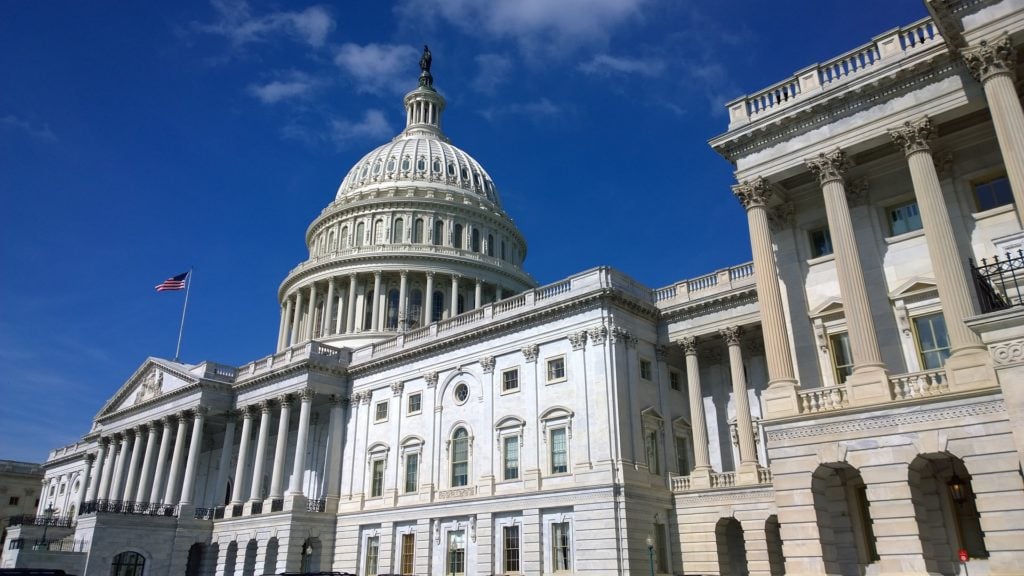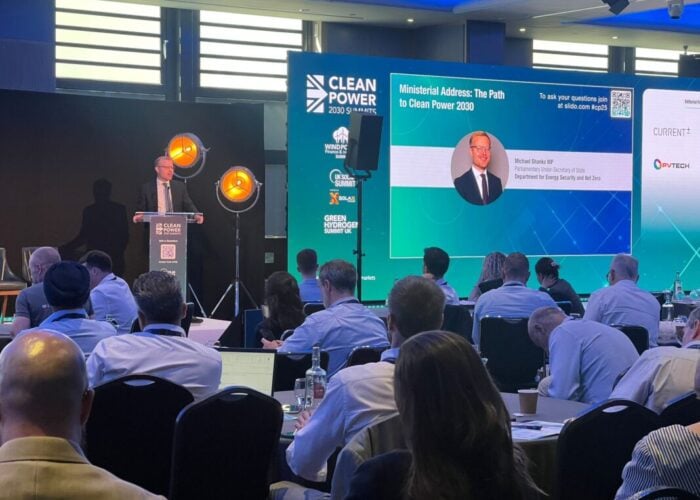
Over 400 US solar companies have sent a letter to Congress advising against the repeal of Joe Biden’s two-year waiver on solar import tariffs, led by trade body the Solar Energy Industries Association (SEIA).
SEIA said that repealing the waiver, which is currently set to run until 2024, would see US solar companies incur over US$1 billion in retroactive duties paid on imports for 2022-23 and cause the cancellation of around 4GW of planned projects this year.
Unlock unlimited access for 12 whole months of distinctive global analysis
Photovoltaics International is now included.
- Regular insight and analysis of the industry’s biggest developments
- In-depth interviews with the industry’s leading figures
- Unlimited digital access to the PV Tech Power journal catalogue
- Unlimited digital access to the Photovoltaics International journal catalogue
- Access to more than 1,000 technical papers
- Discounts on Solar Media’s portfolio of events, in-person and virtual
Biden introduced the waiver in June 2022, whilst the Department of Commerce was investigating allegations that Chinese solar manufacturers had been circumventing anti-dumping/countervailing duty (ad/cvd) tariffs by moving portions of their operations to Southeast Asia. The investigation subsequently found that more than 20 companies had been evading duties by completing their production in Vietnam, Malaysia, Cambodia and Thailand.
The initial call for an investigation into ad/cvd circumvention came from a single US manufacturer, Auxin Solar, after multiple petitions were filed anonymously and rejected.
In January a bipartisan group of US lawmakers submitted the proposal to repeal the waiver under the Congressional Review Act (CRA), which allows executive decisions to be reversed if a simple majority is reached and passed within 60 days. Dan Kildee – one of the leading congressmen behind the resolution – said that the US needed to assert its independence from China, retain US jobs and businesses and prevent violations of US trade law by foreign importers.
In its statement ahead of Congress’ vote, SEIA turned this same pro-US rhetoric back towards its opponent: “This deeply flawed use of the Congressional Review Act rips the rug out from underneath American businesses and will cause thousands of workers to lose their livelihoods, “ said Abigail Ross Hopper, president and CEO of SEIA.
SEIA said that if the CRA legislation passes it will eliminate 30,000 US solar jobs, including 4,000 in the manufacturing sector.
The central issue is the conflict between the US’ desire to build out its domestic PV manufacturing base and reduce its reliance on Chinese supply and the industry’s awareness of the time needed to make that happen.
The Inflation Reduction Act came into law last summer to much acclaim, bringing tax and investment incentives for the US renewables sector. But analyses from Wood Mackenzie have predicted that it won’t begin taking full effect until 2024, and that in the meantime the US will struggle to reach its solar PV demand with domestic supply. As it stands, 80% of the US’ solar modules come from Southeast Asia.
The tariff waiver was intended to allow a cushioning period for the US industry to continue growing whilst the manufacturing buildout takes place.
Chad Farrell, co-CEO and founder of Encore Renewable Energy – one of the companies that signed the letter – said: “Since the announcement of the two-year pause on solar tariffs and the passage of the Inflation Reduction Act, we’ve seen a huge uptick in the development of American solar manufacturing facilities.
“The administration’s action provided our company with the certainty needed to continue to build solar projects while providing an important bridge for domestic manufacturing to scale. Our lawmakers should oppose the efforts presented by the Congressional Review Act that will not only halt our progress to date but jeopardise our ability to compete with other nations for climate economy leadership and to do our part in addressing the global climate crisis.”
The ad/cvd saga has been long-running; a March report showed that procurement issues from the tariffs and the Uyghur Forced Labor Prevention Act caused a 31% drop in utility-scale solar deployments last year.
SEIA said that it too wants to lessen the US’ reliance on China and establish a domestic supply chain, but that congress should not throw the baby out with the bath water. It said that allowing the waiver to stand would prevent “significant detrimental effects” for the solar industry.







